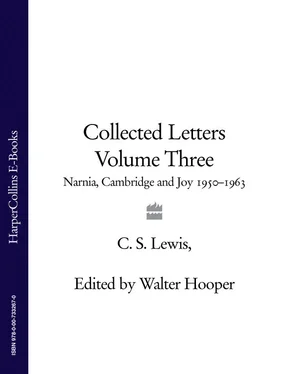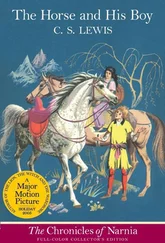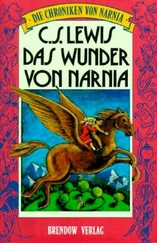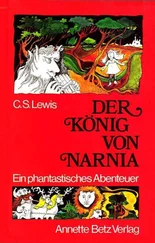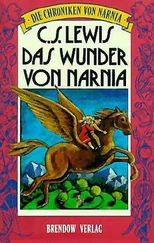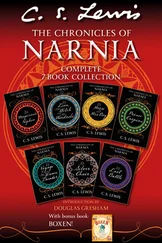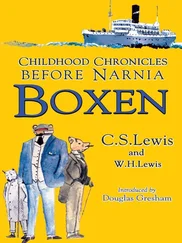At the moment, after a fortnight of it, we are having a thaw, but there is of course the chance of its freezing tonight, and ‘the last state of that road will be worse than the first’, 284 to paraphrase the Bible. I used to run a car, but gave it up before the war; first, because our roads are now so crowded that there is no longer any pleasure motoring, and secondly because I find it much cheaper and just as convenient to use the bus service.
As you say, we shall no doubt have large numbers of Americans in England for the Coronation, and some of them may not be a good advertisement for your country; but it is an odd thing that I have noticed, that since the war, the type of American visitor we have had is much nicer on the whole than that which came to us between the wars. I suppose it is that, owing to the drop in sterling, we are now getting the Americans of modest means. And it has been my experience that the rich of any country are usually the least attractive specimens of the nation. *
Talking of Americans, we have just had a ‘pen friend’ of long standing, from New York (state not city) stopping with us; 285 she belongs to the small income group, and is delightful—a rolling stone, authoress, journalist, housewife and mother, and has been ‘doing’ England in a way which few Americans must have done before. Last time I heard from her, she had been at a Cockney wedding in the East End of London, where the guests slept on the kitchen floor after the festivities! She comes back to us next week before sailing for America, and we look forward to hearing her experiences. She ran out of money a little while ago, but has apparently supported herself quite comfortably by giving treatment in ‘dianetics’ 286 (whatever that maybe).
You say with your usual kindness ‘speak up’. But how or why? We have never had a gift from you which did not give great pleasure and satisfaction; so what am I to say? A tin of peacock’s brains? Some frozen lark’s tongues by air mail? Whatever you like to send us, you may be sure will be very welcome. With love and all Christmas blessings to both of you,
Yours sincerely,
C. S. Lewis
TO PHYLLIS ELINOR SANDEMAN (W): 287
As from Magdalen College,
Oxford
10.xii.52
Dear Mrs. * Sandeman,
I have read Treasure on Earth and I don’t believe you have any notion how good it is. 288 You have done a most difficult thing: the only parallel (for I won’t admit that odious work Brideshead Revisited) is Lubbock’s Earlham. 289 I’ve never seen the hushed internal excitement of a child on Christmas Eve better done. That is something we can all recognise. For the rest, nous autres 290 who grew up in villas or ‘mansions’ on the outskirts of industrial towns, might seem ill-qualified to judge: yet perhaps not. ‘Nothing is great or small except by position’ and the house one grows up in has always a certain immemorial grandeur in one’s mind. At least, everywhere else, all one’s life, is new, raw, colonial. The big difference is that your houses are given to the Nation while ours simply disappear, pulled down, and the new ‘estates’ rise over them. It is like the difference between a Mummy and a burial at sea!
I don’t know how you could bear to revisit your house: the Epilogue almost made me cry. And it isn’t only Houses: the very earth is being destroyed, the shapes of the hills disappear, the rabbits are gassed–‘All things are taken from us and become Portions and parcels of the dreadful past.’ 291 Of course they survive somewhere–1910 can’t be any less (or more) real in eternity than 1952.1 wonder whose they are? Do those panels belong to the Vaynes or to Grinling Gibbons? 292
Oh, by the way, thank you for telling me (I had always suspected it) that knives and forks grate unpleasantly on silver, and therefore presumably on gold: it might add a realistic detail to some high banquet in Narnia. 293
The only page that I can’t enter into at all is p. 83. I can’t conceive not being afraid, as a child, of those unseen presences. 294 I shd. have behaved like little Jane Eyre in the Red Room when she dried her tears for fear a ghostly voice should awake to comfort her. 295 One wd. rather be scolded by a mortal than comforted by a ghost.
You will notice when you re-read your book in a different mood that it doesn’t really give the impression of a very happy childhood. Ecstatic, yes: shot through with raptures and tingling delights, but not very secure, not very consoled. And that, I believe, is absolutely true: I fancy happy childhoods are usually forgotten. It is not settled comfort and heartsease but momentary joy that transfigures the past and lets the eternal quality show through. (I sometimes eat parsnips because their taste, which I dislike, reminds me of my prep-school, which I disliked: but those two dislikes don’t in the least impair the strange joy of ‘being reminded’.)
One could go on meditating on these things indefinitely—Very many thanks for the book: it is that rare thing (rare at our age) a present one really likes. The illustrations are good too, as much of them as the coarse printing and paper has not murdered, but don’t believe anyone who says you draw better than you write. The reverse is true. With much gratitude and all good wishes.
Yours very sincerely
C. S. Lewis
TO PHYLLIS ELINOR SANDEMAN (W):
Magdalen College,
Oxford
Dec 11th 1952
Dear Mrs Sandeman
You were perfectly right to put in the bit about the friendly ghosts. I think the absence of fear is, as far as it goes, probable evidence that the experience was not merely imaginary. Everyone fears lest he should meet a ghost, but there seems to be some ground for supposing that those who really meet them are often quite unafraid. Notice that angels, on the other hand, seem in Scripture to be nearly always terrifying & have to begin by saying ‘Fear not’. 297
In Ireland I stayed at a lonely bungalow last summer which the peasants avoided not because a ghost had been seen near it (they didn’t mind ghosts) but because the Good People, the Faerie, frequented that bit of coast. So apparently ghosts are the least alarming kind of spirit.
With all good wishes and thanks. You’ll enjoy Earlham I’m sure. And congratulations, it’s nice to be reprinting.
Yours sincerely
C. S. Lewis
TO ROGER LANCELYN GREEN (BOD):
Dec. 13. 52
My dear Roger
You’ll be wondering why I haven’t acknowledged the Searching Satyrs. 298 After reading it I wanted to compare it with the original, but the Fragments aren’t in my Sophocles, and I’ve never done it. Your version reads v. crisp & pleasant, almost Gilbertian in places. And what a lovely book? It must be nice to have anything of one’s own printed so beautifully. Very many thanks.
Love and Christmas wishes to all of you.
Yours
Jack
TO I. O. EVANS (W):
Magdalen etc
Dec 13. 52
Dear Evans
Thank you for your kind letter. I am so glad you liked the story. What is one to do with illustrators—especially if, like mine, they are (a far surer defence than obstinacy) timid, shrinking young women who, when criticised, look as if you’d pulled their hair or given them a black eye? My resolution was exhausted by the time I’d convinced her that rowers face aft not (as she thinks) forward. 299
All that about the earlier text of the “War of the Worlds is most interesting. With all good wishes.
Yours
C. S. Lewis
TO RHONA BODLE (BOD): 300
Magdalen College,
Oxford.
Dec 15th 1952
Dear Miss Bodle
I think the little book quite excellent. The ‘baldness & flatness’ as you call them—I shd. say ‘economy & simplicity’ are its great merit. I want only one change: in the prayer beginning ‘bless mother & father’ there should be some indication that we are to pray for particular people by name: a child might think that ‘all the people I like’ was a rigid formula and that one oughtn’t to individualise. And the same with all the clauses of the prayer. You have the rare happiness of being engaged on a work of real & undoubted value: more power to your elbow!
Читать дальше
